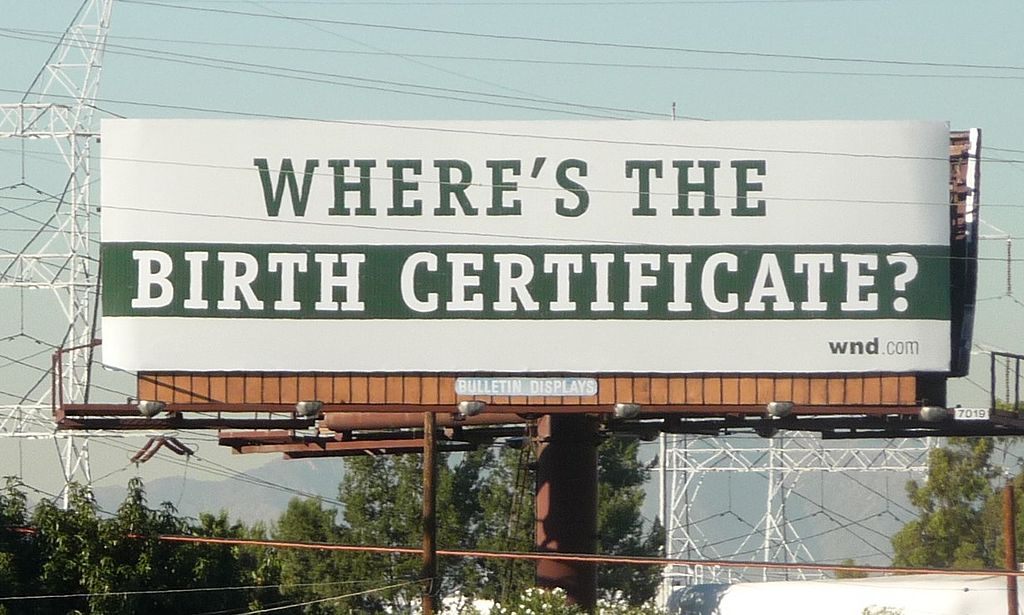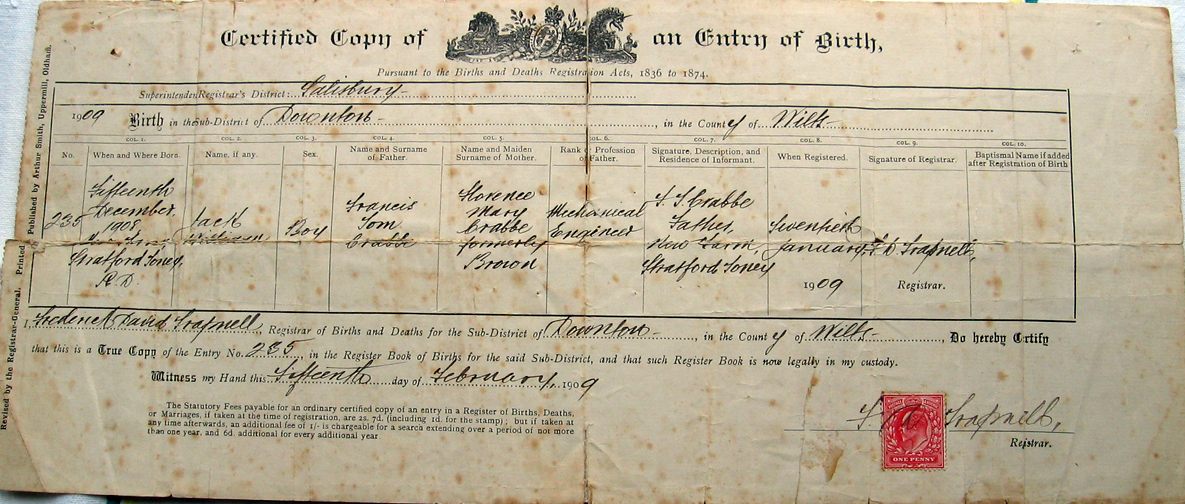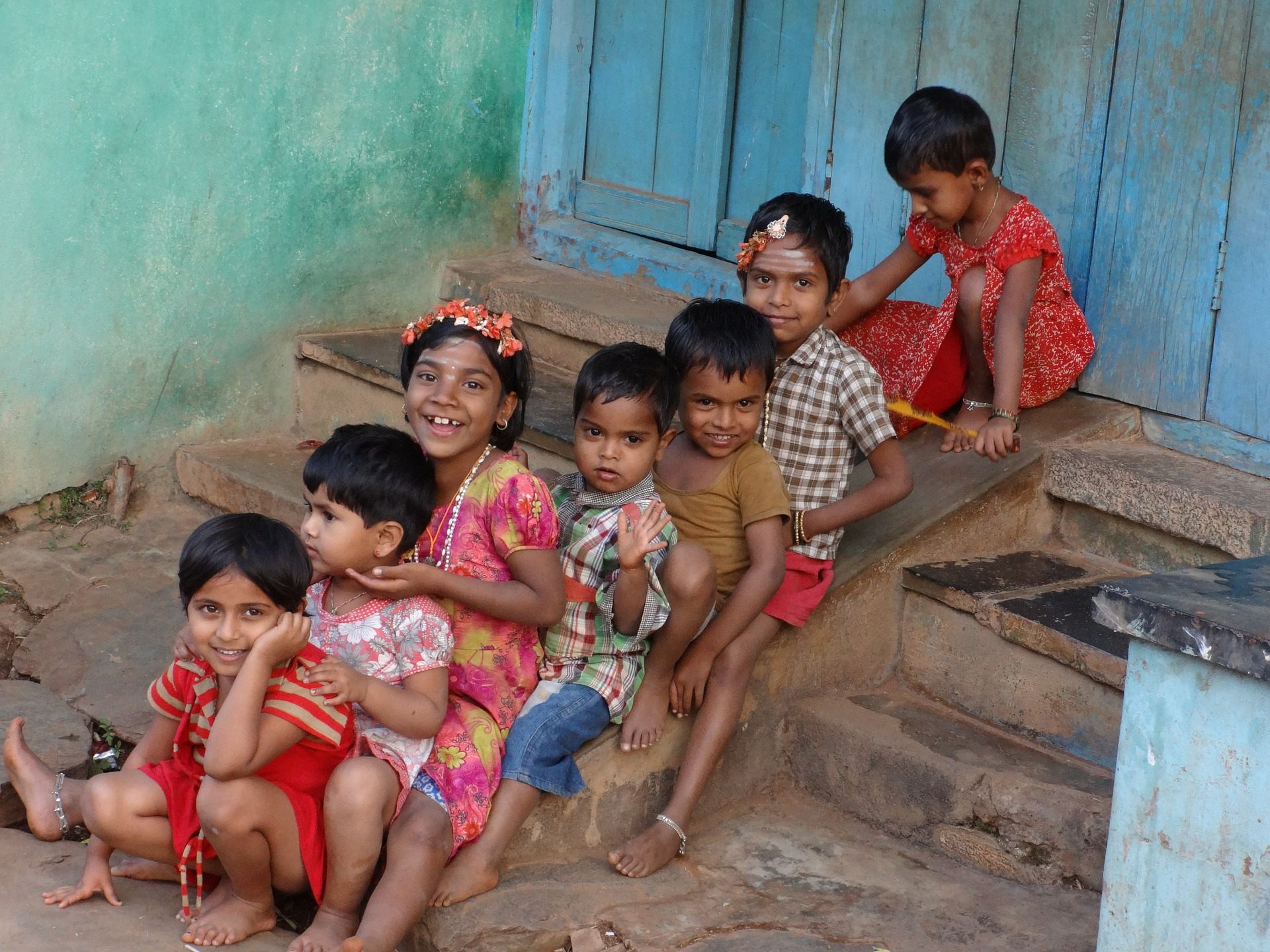How the Birth Certificate Became a Ticket to Society
 This sign would be more useful in Somalia than in California. (Photo: Public Domain/WikiCommons)
This sign would be more useful in Somalia than in California. (Photo: Public Domain/WikiCommons)
Whether the advent of your birthday each year is a happy or sad occasion, it’s hard to forget the date. But millions around the world have no documentation of their birth, or even the knowledge of what day it took place.
Not having a record of your birthday has consequences far beyond an inability to blow out candles on the right date. People without birth certificates can’t vote or run for office and are denied access to basic rights and protections. Without birth certificates, children lack access to healthcare and immunizations, school enrollment, and proper treatment in the justice system.

(Photo: Pixabay)
In developed countries, lacking a birth certificate basically cuts you off from society. And while other regions might be less regulated, Unicef still describes birth registration as a child’s “passport to protection.” Unregistered kids lack any legal rights and are at heightened risk of child labor, forcible conscription, child marriage, trafficking, and sexual exploitation. Without proof of their age, minors can be described (or sold) as much older than they actually are: a 12-year-old boy somehow becomes a 17-year-old factory worker and a 13-year-old girl is suddenly an 18-year-old wife.
For governments, lacking vital statistics on births (and deaths) leads to incomplete data and inaccurate monitoring of national health trends. Around 51 million babies a year are born without any sort of certificate or digital documentation—but this estimate doesn’t include China, the world’s most populous country, where figures are unknown. The fact that the births of nearly 230 million children under the age of five have not been recorded is a global birthday crisis that more and more countries are starting to pay attention to.
Birth certificates haven’t been around for that long. The United Kingdom began recording births in church registers as early as the 1500s, but no compulsory, standardized system truly came to exist until the 1902 Act of Congress in the U.S., which established a permanent agency and standard registration system. For governments, then and now, registering births keeps track of military manpower, taxable citizens, and demographic trends. For individuals, birth certificates show proof of relation to parents as well as proof of citizenship, along with the right to welfare benefits, a marriage license, and that whole goodie bag. A valid birth certificate still holds great power: a guy with a PhD from Harvard University devoted three whole years to researching his book, Where’s the Birth Certificate? arguing (three years after the election) that Barack Obama was ineligible for the presidency.

A British birth certificate from 1908. (Photo: crabchick/flickr)
The first U.S. Standard Certificate of Live Birth was introduced in 1900, and has since undergone 12 revisions. Still, by the early 1940s, about 43 million Americans, or one-third of the working-age population, didn’t have birth certificates and in the midst of wartime, were suddenly hard-pressed to prove their citizenship. In 1942, the magazine Good Housekeeping published an article about the issue, stating, “America has suddenly become aware of birth certificates.” Without them, Americans were being turned away from critical jobs and health services.
In 1998, the National Center for Health Statistics estimated that 99 percent of U.S. births had been properly registered. However, there remain countries in which that number is much lower—for example, it is 58 percent in India and three percent in Somalia. Without proof of the other 97 percent, the Somalian government has no obligation to provide these children with basic services and protections. Abuse, neglect, and violence tend to follow, all of which stays invisible and undocumented.
India didn’t introduce its Registration of Births and Deaths Act until 1969, and across regions, registration rates range from 20 to 57 percent. In India alone, 10 million or so births go unregistered each year. South Asia in general is struggling the most, with approximately 22.5 million unregistered births in 2000, a 27 percent registration rate. Based on the same data, 70 percent of births in sub-Saharan Africa went unregistered and almost a third in the Middle East and North Africa.

Tens of millions of kids don’t have birth certificates. (Photo: Pixabay)
According to Plan International, 100 countries don’t have ”functioning systems” to register births, meaning adequate technology, capacity, training, or staff. The lack of documentation violates United Nations Articles 7 and 8, ratified by 191 countries, which give every newborn the right to be registered at birth without discrimination. To address this, some countries are starting to enlist the help of SMS and mobile technology, while Brazil made registration free more than a decade ago.
Universal—and accurate—birth registration is critical to public health and human rights, especially for kids. That’s why the best birthday present is not an iPad or a pile of cash, but a birth certificate.

This story appeared as part of Atlas Obscura’s Time Week, a week devoted to the perplexing particulars of keeping time throughout history. See more Time Week stories here.









Follow us on Twitter to get the latest on the world's hidden wonders.
Like us on Facebook to get the latest on the world's hidden wonders.
Follow us on Twitter Like us on Facebook